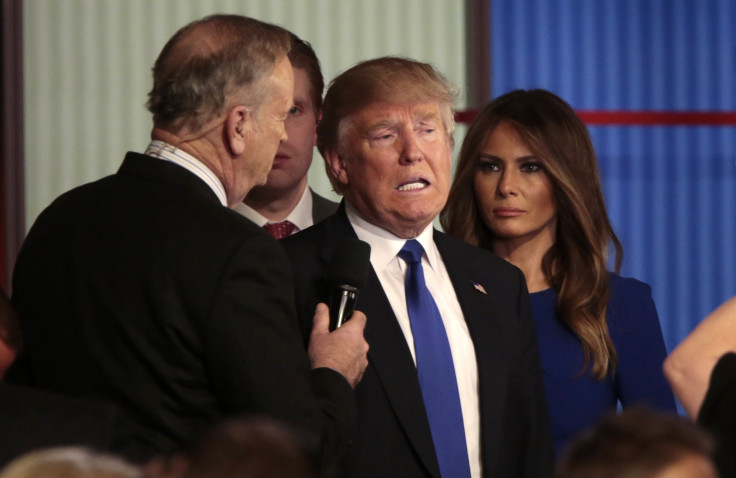Bill O'Reilly To Donald Trump: Black People Are ‘Ill-Educated And Have Tattoos On Their Foreheads’ (WATCH)

Fox News host Bill O’Reilly, eager to press Republican front-runner Donald Trump on his potential appeal to black voters, interrupted the presidential candidate Monday to make a pointed retort to his plans to win over the demographic by bringing jobs back to the United States. Many African-Americans, O’Reilly told Trump, are “ill-educated and have tattoos on their foreheads,” and aren’t qualified for jobs.
The statement followed a series of questions on the subject, including one in which the host asked how the billionaire would address the “grievance industry,” a term commonly used by O’Reilly to criticize the idea that African-Americans face systematic disadvantages with historic roots and should be compensated for their situation. Trump ignored the question, keeping to his message that he would bring manufacturing jobs to American soil.
“Many of them are ill-educated and have tattoos on their foreheads,” O’Reilly said. “I hate to be generalized about it, but it’s true. If you look at all the educational statistics, how are you going to get jobs to people who aren’t qualified for jobs?”
Trump didn't make clear his thoughts on forehead tattoos. Instead, he replied with an idea that has been employed by many Republican presidential candidates in the past — that under a Trump presidency, products like Apple computers would be manufactured in the United States. Any training needed for those jobs would be provided, Trump said.
Economists have estimated, however, that bringing Apple manufacturing to the United States isn’t likely to happen, because Chinese tech employers often pay assembly workers much less than American laws would allow. An all-American iPhone, for instance, would likely add anywhere from $65 to $100 to the price tag per device.
Trump, whose support among black voters has ranged from 4 to 12 percent, isn’t the only Republican who has struggled to appeal to African-American voters. The demographic isn’t known to support GOP candidates, and in the past 50 years, no Republican has received support from more than 15 percent of black voters.
© Copyright IBTimes 2024. All rights reserved.






















